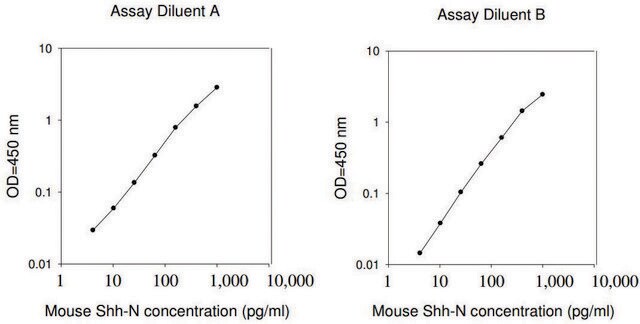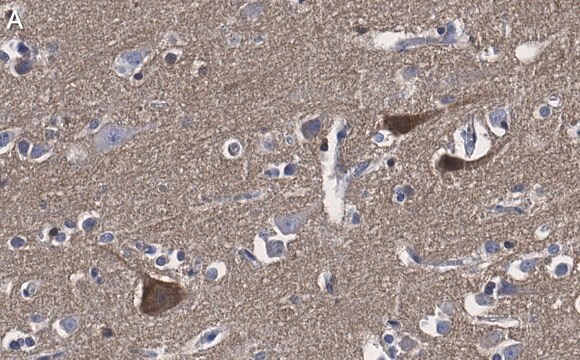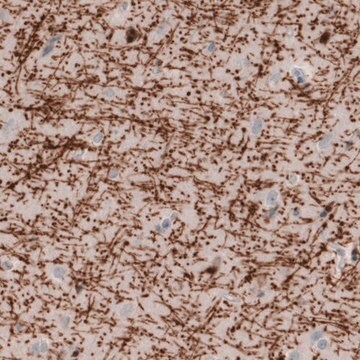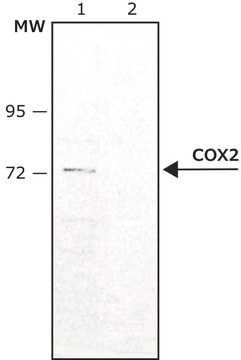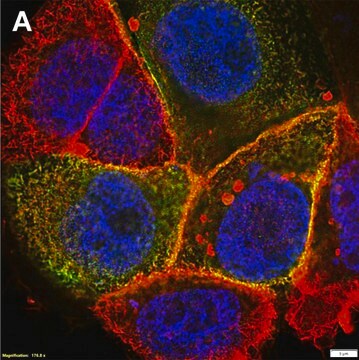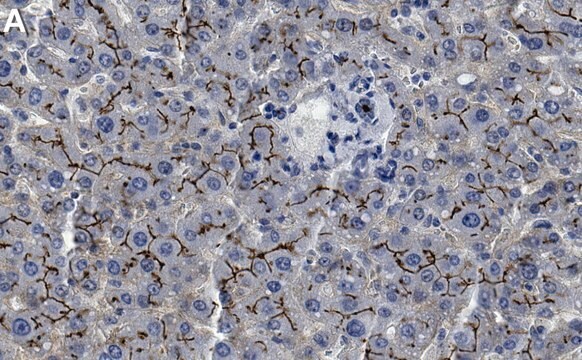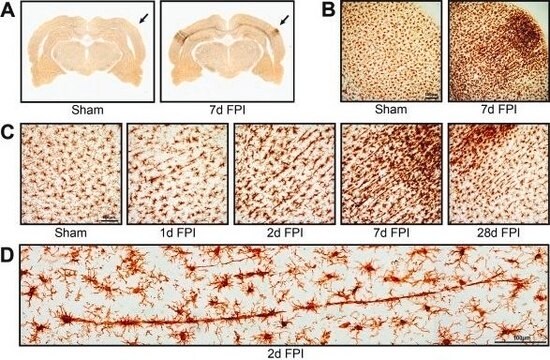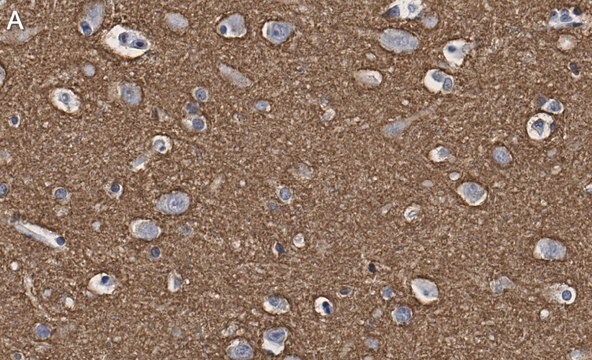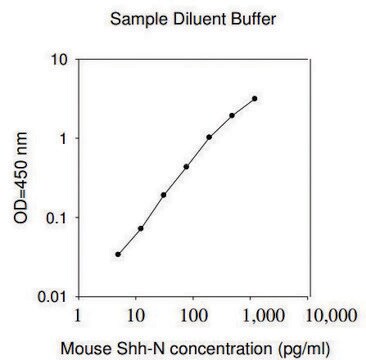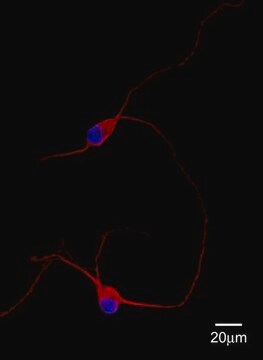Opis ogólny
Jesteśmy zaangażowani w dostarczanie bardziej ekologicznych produktów alternatywnych, które są zgodne z co najmniej jedną z 12 zasad zielonej chemii. To przeciwciało nie zawiera konserwantów, jest produkowane bez szkody dla zwierząt i wyjątkowo stabilne, aby umożliwić wysyłkę i przechowywanie w razie potrzeby, a tym samym jest zgodne z "Zapobieganiem powstawaniu odpadów", "Projektowaniem bezpieczniejszych chemikaliów" i "Projektowaniem pod kątem efektywności energetycznej".
Kliknij tutaj, aby uzyskać więcej informacji.
Przeciwciała 10889 reprezentują całkowicie nową generację rekombinowanych przeciwciał monoklonalnych. Każde przeciwciało 10889 jest wytwarzane przy użyciu naszego zastrzeżonego rekombinowanego systemu ekspresji, oczyszczane do jednorodności i precyzyjnie dozowane w celu uzyskania solidnej i wysoce powtarzalnej spójności między partiami. Do użytku badaczy udostępniane są wyłącznie klony o najwyższej wydajności. Każde przeciwciało jest sprawdzane pod kątem wysokiej swoistości i powinowactwa w wielu zastosowaniach, w tym w najczęściej używanym zastosowaniu. Przeciwciała 10889 są niezawodnie dostępne i gotowe do wysyłki, gdy są potrzebne.
Specyficzność
Klon 2B19 jest króliczym rekombinowanym przeciwciałem monoklonalnym, które specyficznie wykrywa COX-2. Celuje w epitop w obrębie 22 aminokwasów od regionu C-końcowego.
Immunogen
Liniowy peptyd sprzężony z KLH odpowiadający 22 aminokwasom z C-końcowego regionu ludzkiej cyklooksygenazy-2 (COX-2).
Zastosowanie
Testy kontroli jakości
Oceniane metodą Western Blotting w lizacie komórek A549.
Analiza Western Blotting: Rozcieńczenie 1:1000 tego przeciwciała wykryło COX2 w lizacie komórek A549.
Testowane aplikacje
Affinity Binding Assay: Reprezentatywna partia tego przeciwciała wiązała COX2 z KD wynoszącym 1,3 x 10-8 w teście wiązania powinowactwa.
Analiza immunohistochemiczna (parafina): Rozcieńczenie 1:100 z reprezentatywnej partii wykryło COX2 w skrawkach tkanki ludzkiej nerki.
Analiza immunocytochemiczna: Rozcieńczenie 1:100 z reprezentatywnej partii wykryło COX2 w komórkach A549.
Uwaga: Rzeczywiste optymalne rozcieńczenia robocze muszą być określone przez użytkownika końcowego jako próbki, a warunki eksperymentalne mogą się różnić w zależności od użytkownika końcowego.
Anti-COX2, klon 2B19 10889, nr kat. ZRB1514, jest rekombinowanym króliczym przeciwciałem monoklonalnym, które jest specyficznie ukierunkowane na COX2 i jest testowane do stosowania w testach wiązania powinowactwa, immunocytochemii, immunohistochemii (parafina) i Western Blotting.
Opis wartości docelowych
Syntaza 2 prostaglandyny G/H (UniProt: P35354; znana również jako EC:1.14.99.1, Cyclooxygenase-2, COX-2, PHS II, Prostaglandin H2 synthase 2, PGH synthase 2, PGHS-2, Prostaglandin-endoperoxide synthase 2) jest kodowana przez gen PTGS2 (znany również jako COX2) (Gene ID: 5743) u człowieka. COX2 jest obwodowym białkiem błonowym, które jest syntetyzowane z peptydem sygnałowym (aa 1-17), który jest następnie odcinany w celu wygenerowania dojrzałej formy, która jest wykrywana po stronie światła retikulum endoplazmatycznego i otoczki jądrowej. Jest to enzym indukowalny i generalnie występuje na bardzo niskim poziomie w większości tkanek, a jego ekspresja wzrasta pod wpływem cytokin i czynników wzrostu. Występuje głównie w miejscach zapalnych, gdzie wytwarza prostaglandyny, które pośredniczą w stanach zapalnych, bólu i gorączce. COX2 wykazuje aktywność cyklooksygenazy i peroksydazy w szlaku biosyntezy prostanoidów. Jego aktywność cyklooksygenazy utlenia arachidonian do hydroperoksy endoperoksydu prostaglandyny G2 (PGG2), a aktywność peroksydazy redukuje PGG2 do hydroksy endoperoksydu PGH2, prekursora wszystkich prostaglandyn serii 2 i tromboksanów. Katalizuje również cyklooksygenację i peroksydację dihomo-g-linoleinianu i eikozapentaenianu do odpowiednich PGH1 i PGH3, prekursorów prostaglandyn serii 1 i 3. Wykazano również, że metabolizuje 2-arachidonoiloglicerol, dając ester glicerynowy PGH2, proces, który może przyczyniać się do reakcji na ból. W komórkach śródbłonka naczyniowego przekształca dokozapentaenian (DPA) do 13R-HDPA, który aktywuje fagocytozę makrofagów podczas infekcji bakteryjnej. Aktywność COX2 może być hamowana przez niesteroidowe leki przeciwzapalne. To rekombinowane przeciwciało monoklonalne 10889, generowane przez naszą zastrzeżoną technologię, oferuje znacznie zwiększoną swoistość, powinowactwo, powtarzalność i stabilność w porównaniu z konwencjonalnymi przeciwciałami monoklonalnymi.
Postać fizyczna
Oczyszczone rekombinowane królicze przeciwciało monoklonalne IgG, liofilizowane w PBS z 5% trehalozą, o normalnym wyglądzie gruboziarnistej lub półprzezroczystej żywicy. Składniki PBS/trehaloza w preparacie 10889 mogą po liofilizacji mieć wygląd półstały (żel przypominający kulki). Jest to zjawisko normalne. Należy postępować zgodnie z zalecaną procedurą rekonstytucji zawartą w arkuszu danych, aby rozpuścić półstały, przypominający kulki materiał o wyglądzie żelu. Otrzymany roztwór przeciwciała jest całkowicie stabilny i funkcjonalny, co potwierdzają pełne testy funkcjonalne. Nie zawiera biocydów ani konserwantów, takich jak azydek, ani żadnych produktów ubocznych pochodzenia zwierzęcego. Większe opakowania są dostarczane jako wielokrotności 25 μL.
Przechowywanie i stabilność
Zaleca się przechowywanie liofilizowanego produktu w temperaturze 2-8°C. Przed rekonstytucją fiolki należy krótko mikrowirować, aby odwirować materiał na dno fiolki. Każdą fiolkę należy odtworzyć, dodając 25 μl przefiltrowanej wody laboratoryjnej lub PBS. Odtworzone przeciwciała można przechowywać w temperaturze 2-8°C lub -20°C w celu długotrwałego przechowywania. Unikać wielokrotnego zamrażania.
Informacje prawne
ZooMAb is a registered trademark of Merck KGaA, Darmstadt, Germany
Oświadczenie o zrzeczeniu się odpowiedzialności
O ile nie określono inaczej w naszym katalogu lub innej dokumentacji firmy dołączonej do produktu(-ów), nasze produkty są przeznaczone wyłącznie do użytku badawczego i nie mogą być wykorzystywane do żadnych innych celów, w tym między innymi do nieautoryzowanych zastosowań komercyjnych, zastosowań diagnostycznych in vitro, zastosowań terapeutycznych ex vivo lub in vivo lub jakiegokolwiek rodzaju konsumpcji lub zastosowania u ludzi lub zwierząt.
Ta strona może zawierać tekst przetłumaczony maszynowo.

